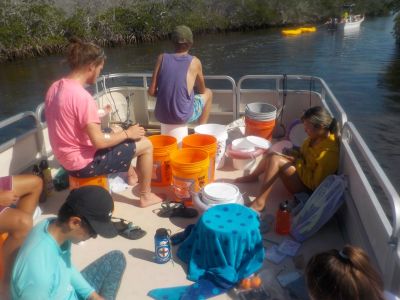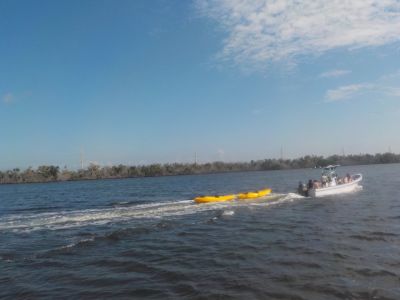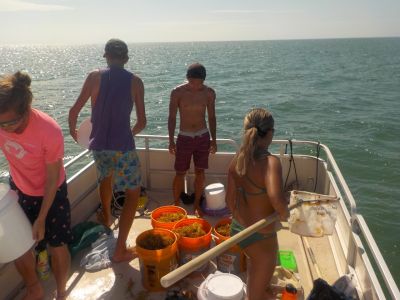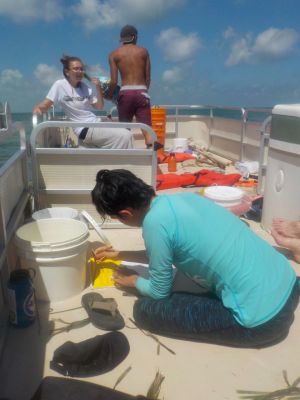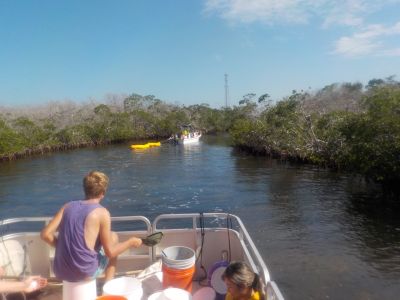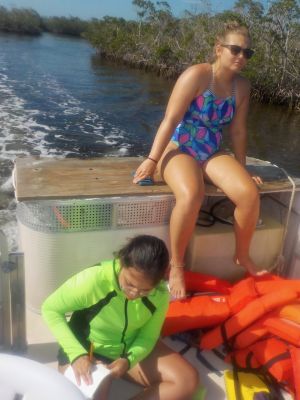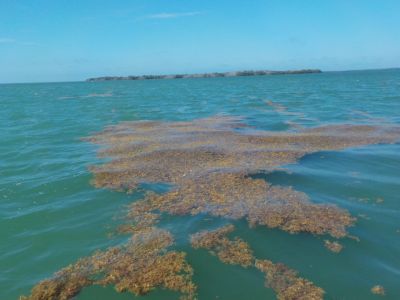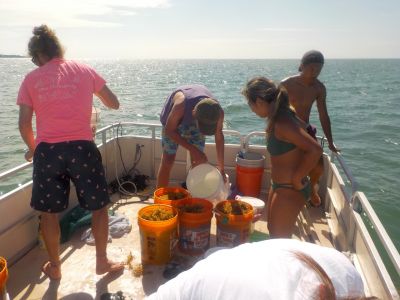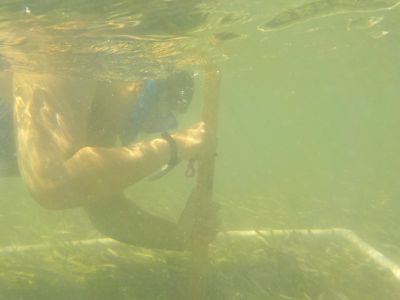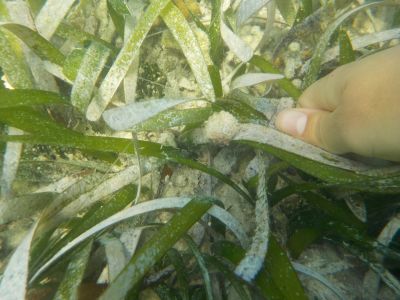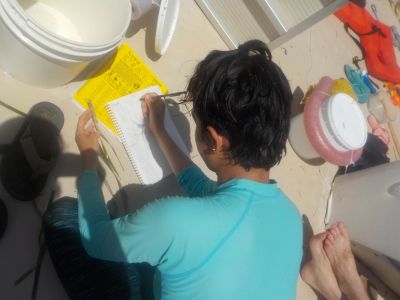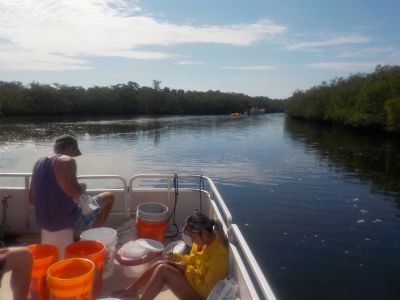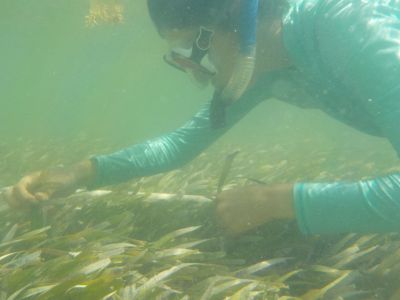
Monday May 13, 2019
We started off the day discussing some of the major threats to the ocean system. Though climate change, over-harvesting, habitat destruction, oil extraction, and invasive species are important, today we focused on the impacts of pollution. The presence of chemicals, nutrient overabundance, and macro/micro plastics transforms habitats and the food chain in marine environments. After the lecture, we dispersed to apply sunscreen and gather equipment for a research visit.
In my research group our pollution discussion of the morning was especially relevant as we came across numerous items like fishing nets, plastic boxes, and pvc pipes entangled in the roots of Rhizaphora mangle, the Red Mangrove trees we are studying. Carefully traveling in our yellow kayaks, we took turns observing sites. We counted a lot of snails clinging to the undersides of branches!
Slowly, everyone arrived back at Goshen’s marine station to eat lunch and get ready for our guest speaker. Alex Neufeld, a staff member of Coral Restoration Foundation, talked about the work CRF is doing both in the Florida Keys and worldwide. The Florida reef tract is 360 miles long and is the third largest barrier reef in the world. One of Neufeld and his colleagues’ major projects is the restoration and monitoring of elkhorn and staghorn coral in sites of the Florida Keys. While these corals used to be the most abundant in the reefs, bleaching and disease has greatly diminished their presence.
The busy day takes it toll and 3:30pm was the unanimously agreed upon nap-time to recharge. Catching up on journals, finishing the species account, or studying for the final exam could wait another forty to sixty minutes.
We concluded the night with a viewing of Paris to Pittsburgh, a 2018 documentary by National Geographic. The message of hope in addressing climate change is inspiring and calls for action on all levels.
– Makena Zimmerman ’20 Biology





